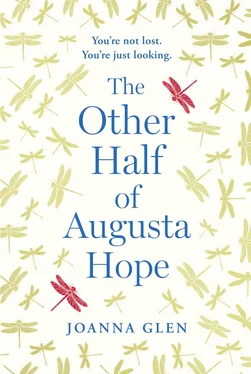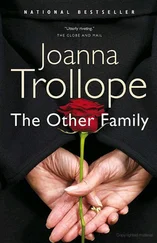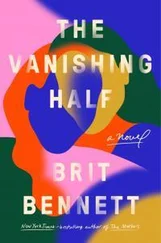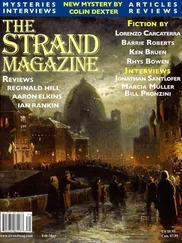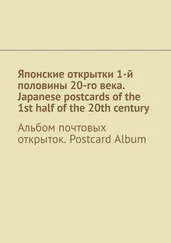At school, in Year 4, 1998, when I was seven years old, and we were doing an underwater project (remaining, ourselves, disappointingly, on land), Miss April told us that marinus meant of the sea in Latin, and sub meant under, hence submarine. But when I put up my hand and told her, excuse me, Miss April, but your pen has rolled sub your desk, she told me not to be a show-off, Augusta.
I’ve always loved words like other people love sweets or ice cream or puddings, words made of letters so that sounds turn into things, actual things. And miraculously we remember which sounds match which things, hundreds and thousands of sound-combinations – because that’s language. It mesmerised me as a child, and I would hang about, spellbound, whenever I heard people speaking Spanish or French or Gujarati.
I realised with some pride that I must sound as clever to foreigners when I spoke English, rattling off the words like a total pro, as we all do – well most of us, not Graham Cook, who lived next door, whose mouth didn’t manage to make any words at all.
‘You pity the Cooks,’ said my father, lightly, with no sign of pity on his face. ‘It could happen to anyone.’
I liked to pop next door and talk to Jim Cook when he was out washing his car in the drive, because he always had new dreams up his sleeve. But the truth was that none of them ever seemed to slip out of his sleeve into real life.
Barbara Cook used to take Julia and me swimming when she had respite care days for Graham because, my mother told me, the poor woman liked the chance to do normal things and do them normally, without a palaver. I tried to make swimming the best possible time for Barbara Cook, although she wasn’t a person who said much about how she was feeling.
One day, after swimming, I couldn’t find my skirt or my pants, and I had to walk into Barbara’s changing cubicle wearing a red T-shirt and nothing else – but all she said was, ‘Augusta, you look the living image of Winnie the Pooh!’
She laughed until her eyes were streaming tears, she wrapped my wet towel around my waist, and I had to waddle into the car park like that, my face on fire with the shame of it.
I wanted to like Barbara Cook, and I did like Barbara Cook, I might even have loved her, so I tried not to mind that she laughed at me when I already felt ashamed. I also learnt a valuable lesson: that the people we like, and might even love, will still disappoint us – in the same way, I suppose, as we disappoint them.
‘Why do you think Barbara laughed at me?’ I said to Julia later.
Julia shrugged and went on making some kind of woollen knitted rope which came out of the head of a painted wooden doll. I hated that thing. I had one too. Of course. Still sealed. Suffocating in her box. Like the rest of us.
My mother, inexplicably, tied Julia’s woollen rope onto the pull-on pull-off light string in the bathroom, to join the gallery of miscellany hung around the house. There were crêpe butterflies, paper mobiles on coat-hangers, doilies taped to windows and paintings magnetised to the fridge – a kind of shrine to us, the twins, their girls.
No more children followed.
‘When you have two perfect children,’ said my father, ‘why ask for trouble?’
‘Perfect, are we?’ said Julia, smiling, and stretching on the sofa like a cat, with that lovely aura of contentment she had, a kind of giant body-shaped halo.
‘No complications, I mean,’ said my father, nodding towards number 2, and reaching out his small pale hand to Julia’s shoulder. ‘All there. Not – you know.’
My father drew spirals out of his right temple.
My mother patted the front of her apron as if she’d baked us, and we’d risen just right.
‘Graham Cook is all there ,’ I said, and I was off. ‘Why do you think it’s OK to make mental spiral signs with your fingers? And how do you think that would that make the Cooks feel? And what on earth does perfect mean anyway, because sometimes the people you think are so perfect in fact end up doing the worst—’
‘Can you slow down, Augusta? I can’t think straight,’ said my father.
‘—things in the world?’
I kept going because I loved the sound of my own voice even though I was scarcely seven years old, and I could only imagine how clever I would sound if someone foreign was listening. Someone from one of the many countries in the world that was not our boring country, afloat on a grey ocean, when other countries got turquoise and aquamarine and azure blue as the colour of their sea.
As you see, I never had that gold halo of contentment around me. I don’t know why that was. I guess it’s the way we were made, Julia and I.
The way I was made was wanting to write a book. From as far back as I can remember.
But first I wanted to memorise as many words as I could, so that I could write it with precision and a bit of pzazz – which is the only word in the dictionary starting with pz , acronyms excepted.
I liked to open the dictionary at the first and tiniest word, a (which has thirty-seven entries), and to work my way through all the letters of the alphabet, exclaiming and memorising, until I ended up at zyzzogeton (a genus of large South American leafhopper), and then I’d try out the words I’d found in new and unlikely combinations. Then I’d go back to the beginning and start at a again.
People typically use 5,000 words in their speech, and twice as many in their writing, but an educated person might use 80,000, and the twenty-volume Oxford English Dictionary has full entries for 171,476 words in current use, 47,156 obsolete words, with 9,500 derivatives as sub-entries.
When I was at Hedley Green library for the morning, I decided to try to find my favourite name for a country, going on sounds, without knowing anything about the place.
I was supposed to be doing a puppet workshop, but I crept away and let Julia make two stripy sock snakes with plastic eyes and felt tongues, which weren’t completely my cup of tea.
I crept past Jean, the librarian, who had a habit of ripping her own hair out, and I sat quietly in the shadows of the bookshelves. I went through all the countries, starting at A and ending at Z, in the index of the atlas, and I came to the conclusion that the best country name in the world was Burundi.
Burundi Burundi Burundi. I said it so many times it stopped meaning anything. It was like the sea lapping against my mind.
I went to the left-hand corner of the library where they had a huge globe on wheels, and I found Burundi, land-locked in Africa between Tanzania and Rwanda and the Democratic Republic of Congo. I turned the globe slowly, staring at all the countries and trying to memorise every name and every location and where they joined, and the shapes they made up against the sea, up against each other, and then I spun the globe round and round really fast, letting it turn into a greeny-blue blur, and I imagined myself at Hedley Green library, a tiny pin-prick in the South of England, rotating, and I tried to work out why we didn’t all fall off the earth – me, Julia, the puppet lady and all the stripy socks.
When I looked up Burundi in the encyclopaedias and information books at Hedley Green library, I found out that the Tutsis looked down their noses at the Hutus, who arrived there first – even though they all spoke the same Bantu language called Kirundi, and had the same colour skin and the same Christian religion. European men called by in ships, and they said that the Hutus should look after the Tutsis’ cows. To cut a very long story short, this in the end made them want to kill each other. I was struck by how sad and unnecessary this was – and then by how many other sad and unnecessary things human beings make happen on this earth. I decided to turn my attention to the sky.
Читать дальше
